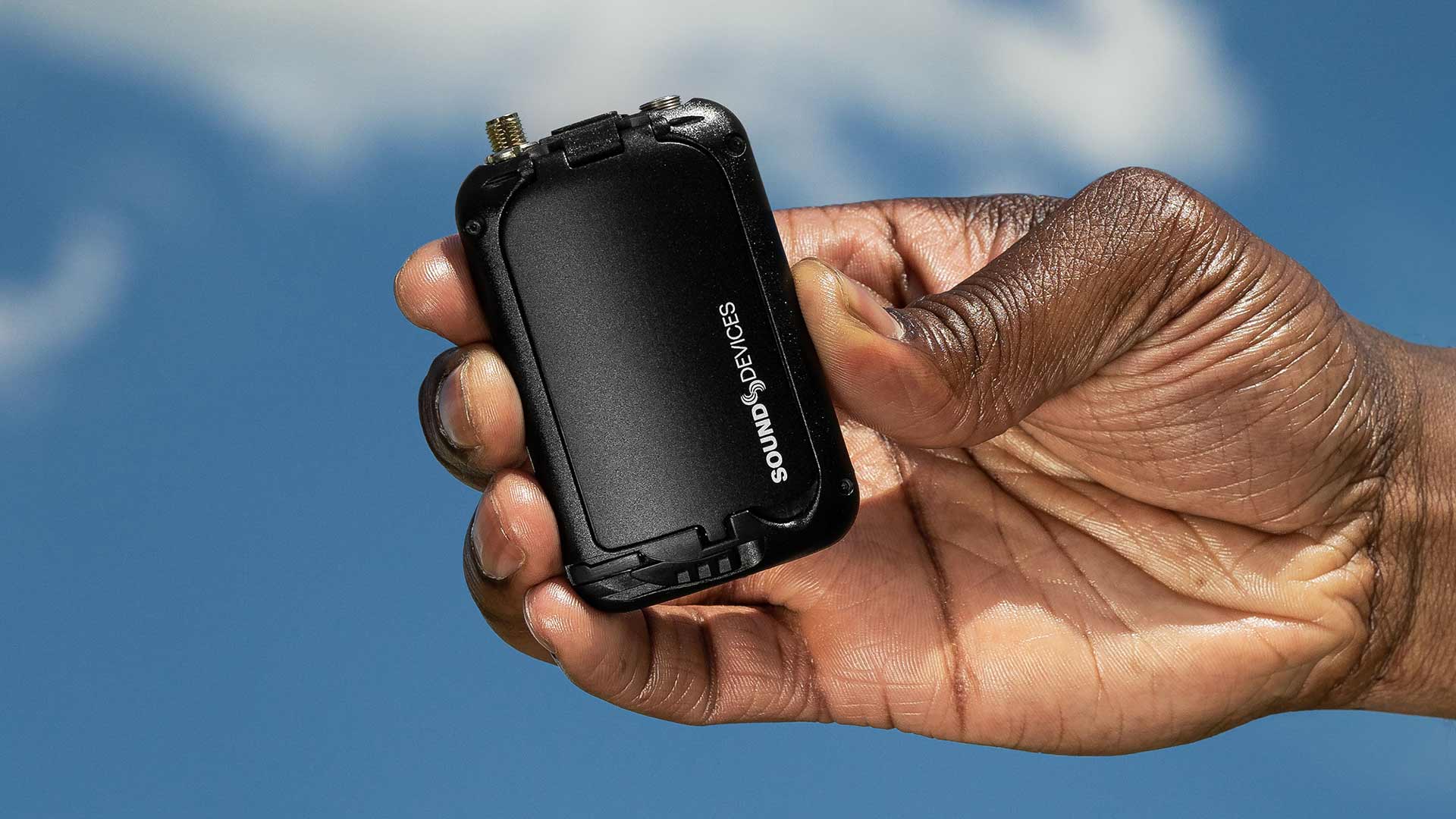
The Sound Devices A20 Mini is new truly high end wireless mic to add to the ever increasing list of choice on the market.
Recently we’ve seen a few launches of radio mics with built-in recording, or at least radio mics with built-in recording that can transmit and record simultaneously (at least outside of the USA). They now exist to serve various different budget levels, from the inexpensive Mirfak WE10 which we looked at recently, through Deity’s Connect series, all the way up to high end options like the Lectrosonics DBSM, for which the company seems to have coined the entirely apposite term “transcorder”.
Sound Devices’ contribution to this particular party is the recently-announced A20 Mini. Based on released information, it’s an easy-swallow lozenge of technology the size and shape of a bar of well-used hotel soap, but it packs in features including timecode, uncompressed recording and transmits at anywhere from 470 to 694MHz (which should make it usable more or less anywhere; it’ll even try to tell you if the frequency you’ve selected requires a license where you are). One particularly neat trick, and one enabled by the proliferation of inexpensive radio hardware, is that the radio communications are bidirectional, with a Bluetooth receiver in the transmitter.
Gainforward dynamic range
Something Sound Devices is pushing hard is a feature it calls GainForward. The idea is to leverage the huge dynamic range of the system in order to make transmitter-side gain control irrelevant. Thus, gain control is entirely moved to the receiver side, and is controllable either on the A10-RX receiver or directly from a compatible Sound Devices mixer’s trim knob when the receivers are in a compatible rack. It’s a nice bit of integration. There’s also lots more control in a cellphone app, which uses 2.4GHz Bluetooth (entirely separate from the transmitter’s main UHF communications) to allow remote administration, including frequency selection and record transport control.
The same trick is applied to record gain, given all onboard recording on the A20 is in 32-bit float. Or, at least, it is in non-US jurisdictions. The idea of cramming a tiny recorder into what would traditionally have been thought of as a radio mic is no longer entirely new, and questions have been raised over whether it was really anything but a fairly obvious idea even when Zaxcom patented it back in 2011. Regardless, and whatever anyone’s opinion on the specifics, the A20 is a transmitter or a recorder in some jurisdictions, and both at once in others.
The company’s intent that this be a tool of the high end is clear, and it’s providing the infrastructure to make that easy. The PowerStation 8M is a docking module that takes up to eight A20 Mini transmitter-recorders, and simultaneously allows for jamming timecode, charging the batteries (assuming the batteries in use are rechargeable), and file transfer.
To be at its most effective, as with many highly-integrated things, it looks like the Sound Devices A20 Mini is likely to give us its best when paired with Sound Devices gear, although given an Audio Limited A10-RX receiver it can be treated as an entirely normal radio mic. If this is the sort of thing that we can expect to see from the alliance of Sound Devices and Audio Ltd, it’s hard to object – although at £2130 apiece, including UK VAT, the Sound Devices A20 Mini really is targeted solely at the high end.
For more information visit the Sound Devices website.


Comments